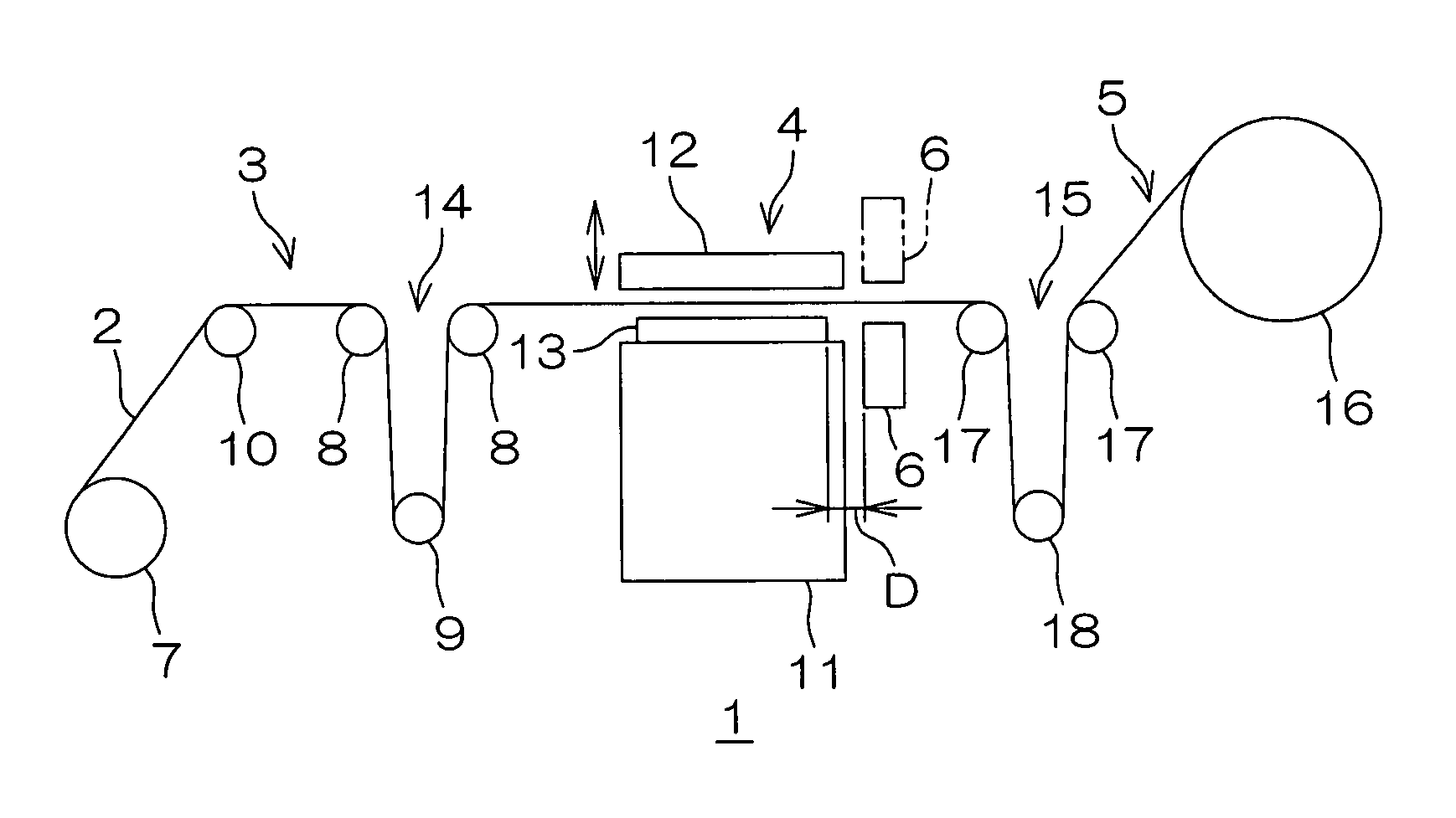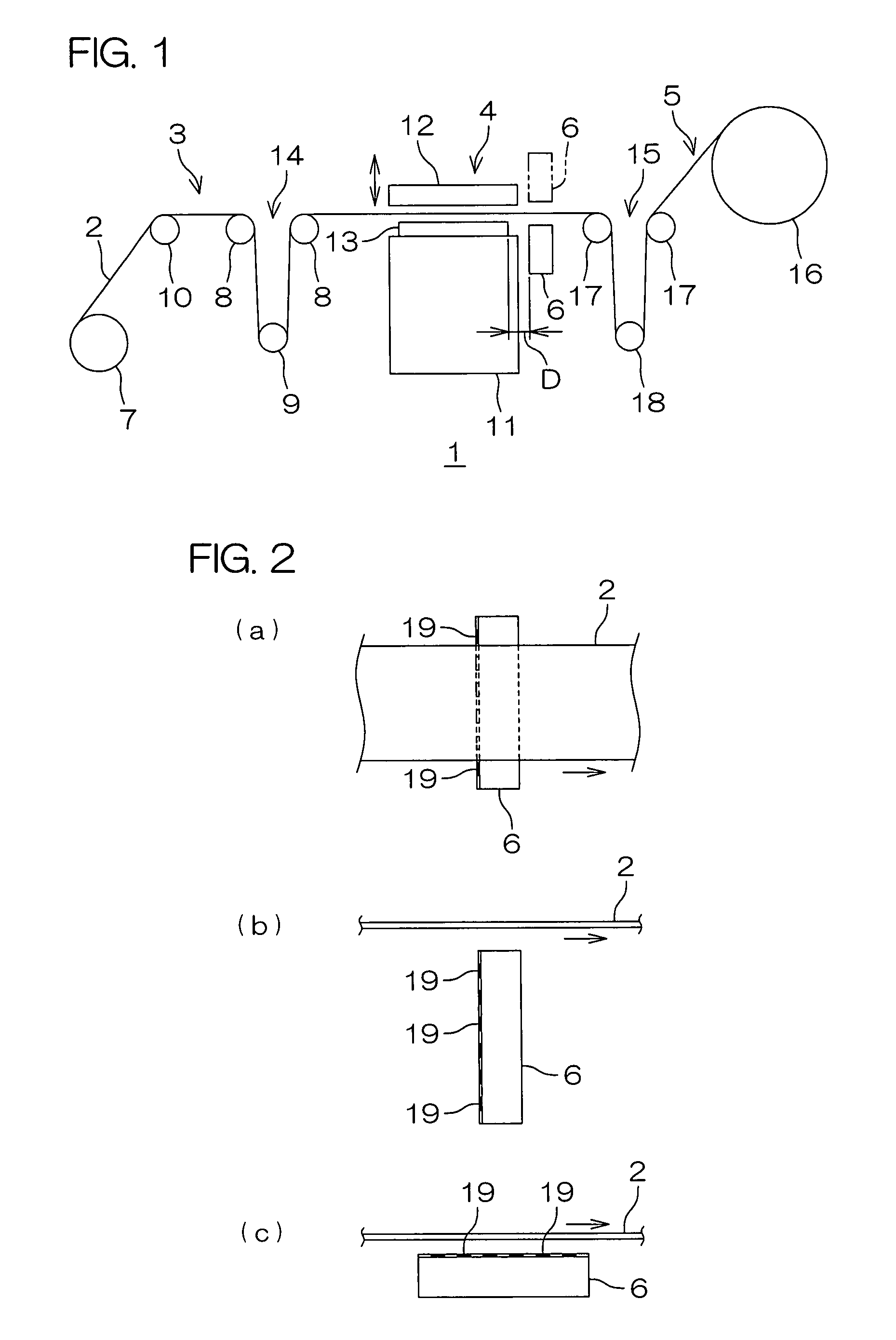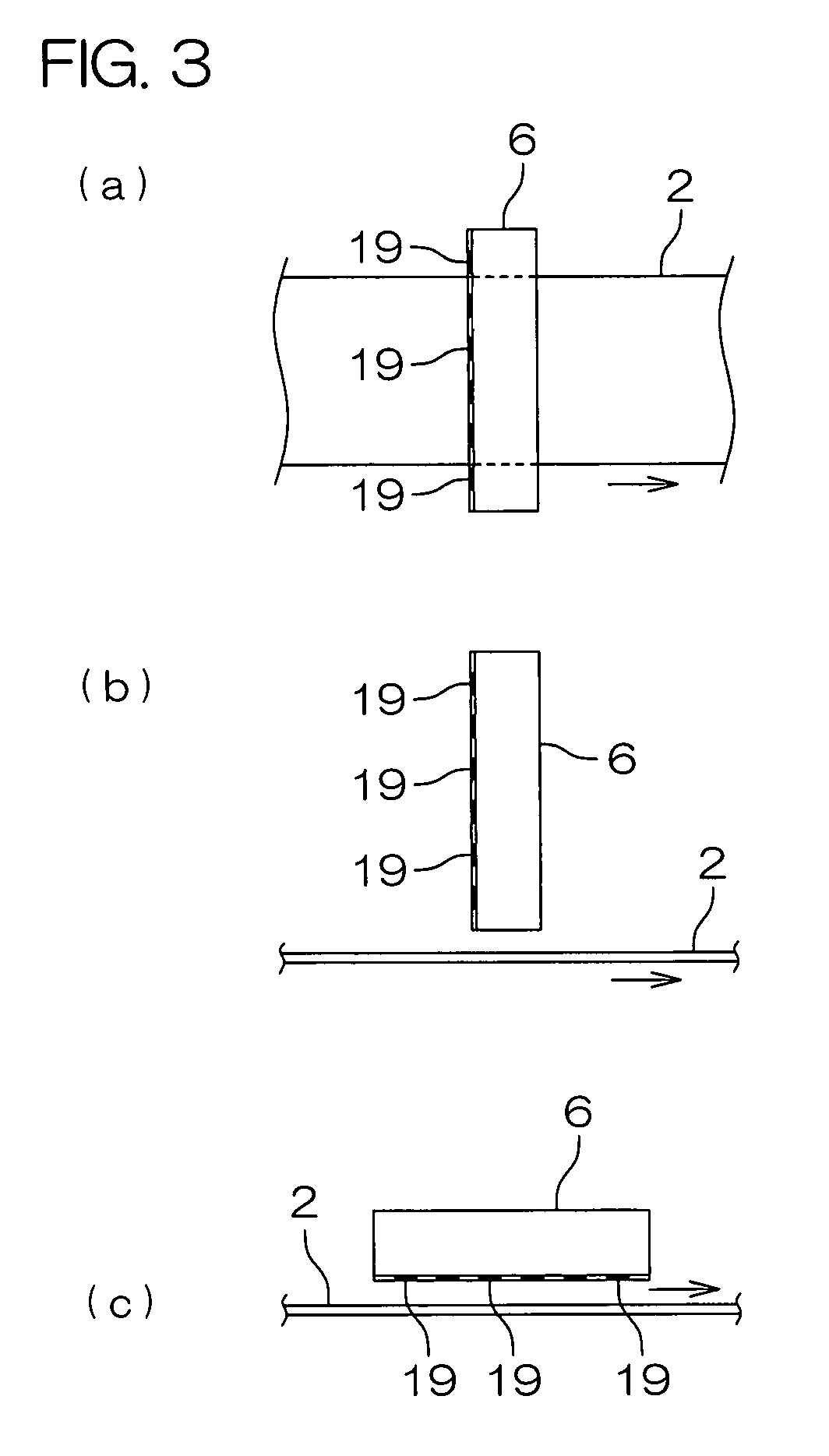Printing apparatus and printing method
a printing apparatus and printing method technology, applied in the direction of printing apparatus, non-metallic protective coating application, coating, etc., can solve the problems of significant challenge in preventing such flowing liquid, affecting the reliability of connection, etc., and achieve the effect of preventing the spread of liquid resists and high precision
- Summary
- Abstract
- Description
- Claims
- Application Information
AI Technical Summary
Benefits of technology
Problems solved by technology
Method used
Image
Examples
example 1
[0072]An elongated base material 2 (a width of 300 mm) in which a insulating base layer made of a polyimide resin having a thickness of 25 μm was laminated on a metal supporting board made of a stainless steel foil having a thickness of 25 μm, and conductive patterns having a wire width of 12 μm, a wire-to-wire spacing of 13 μm, and a thickness of 10 μm were printed on the insulating base layer was prepared and wound around a feed-out roll 7.
[0073]The feed-out roll 7 having the elongated base material 2 wound therearound is set in the printing apparatus 1 shown in FIG. 1 and a liquid resist (SN-9000 (solid content of 40 wt %) commercially available from Hitachi Chemical Co., Ltd.) was printed on the print area of the elongated base material 2 to have a thickness of 36 μm using the printing apparatus 1 shown in FIG. 1, thereby forming a solder resist covering the conductive patterns on the insulating base layer.
[0074]In the printing apparatus 1, the suction unit 6 was formed in the s...
PUM
| Property | Measurement | Unit |
|---|---|---|
| diameter | aaaaa | aaaaa |
| diameter | aaaaa | aaaaa |
| length | aaaaa | aaaaa |
Abstract
Description
Claims
Application Information
 Login to View More
Login to View More - R&D
- Intellectual Property
- Life Sciences
- Materials
- Tech Scout
- Unparalleled Data Quality
- Higher Quality Content
- 60% Fewer Hallucinations
Browse by: Latest US Patents, China's latest patents, Technical Efficacy Thesaurus, Application Domain, Technology Topic, Popular Technical Reports.
© 2025 PatSnap. All rights reserved.Legal|Privacy policy|Modern Slavery Act Transparency Statement|Sitemap|About US| Contact US: help@patsnap.com



